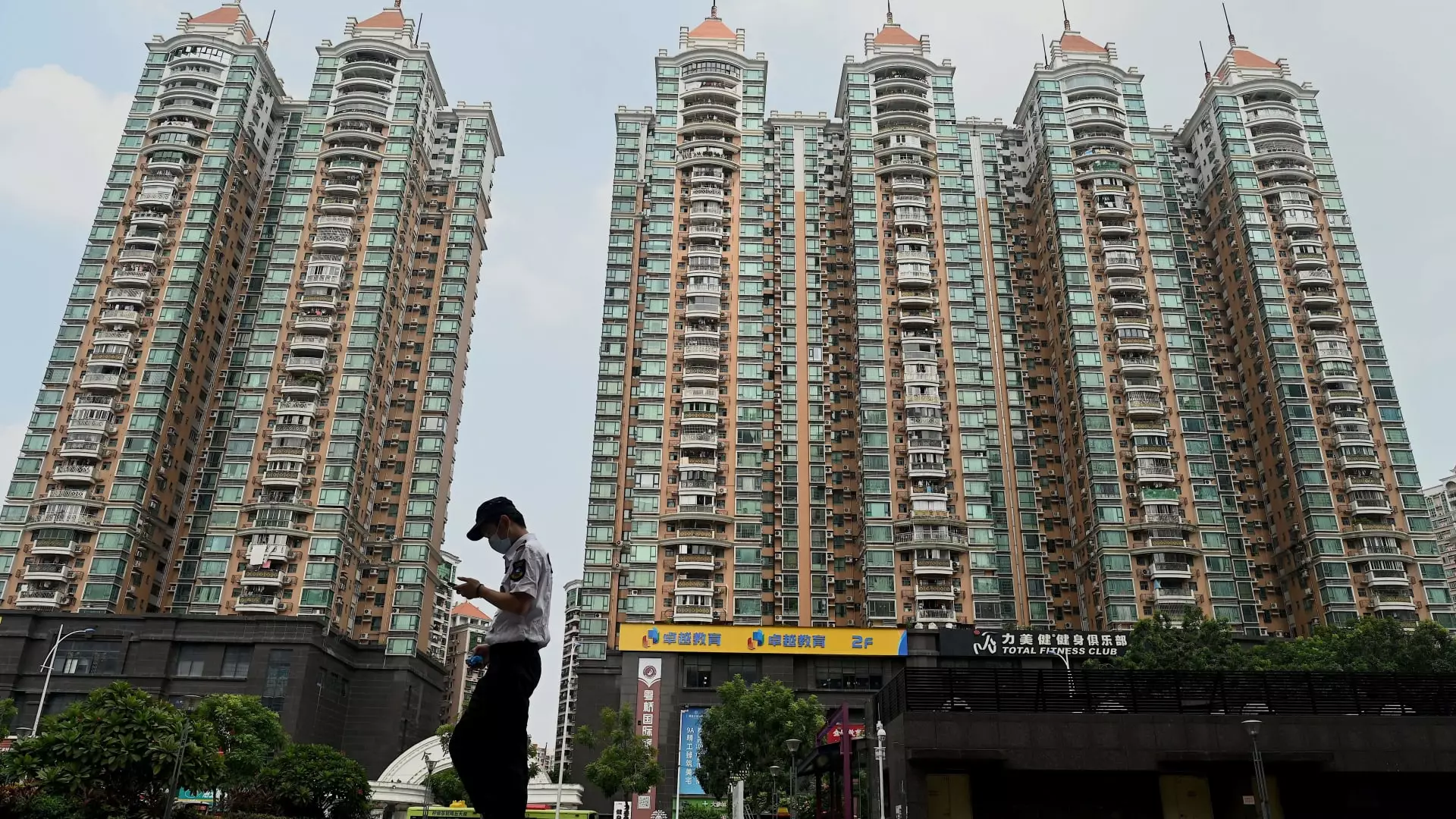The Chinese property market has been facing numerous challenges over the past few years, ultimately leading to a significant downturn. However, recent regulatory changes in major cities appear to signal a strategic shift intended to rejuvenate the sector. With local governments easing restrictions on home purchases, investors have responded positively, resulting in a notable rally among property developers’ shares. In this article, we will delve into the implications of these measures and assess whether they represent a genuine recovery for the real estate market or merely a temporary relief.
On a recent Monday, property developers in China experienced a considerable surge in their share prices, following the announcement of new policies aimed at reviving homebuyer confidence. Notably, the Guangzhou city government stated that all restrictions on home purchases would be lifted. Under previous regulations, conditions imposed on migrant families and single individuals had stymied market activity by limiting their ability to invest in multiple properties. Such measures have been accused of dampening overall market sentiment, and their removal could mark a pivotal moment for prospective homebuyers and the industry at large.
Similarly, the Shanghai government took significant steps to lighten burdens on homebuyers by reducing tax-paying periods and down-payment requirements. With tax obligations now reduced from three years to one and first home down-payments lowered to around 15%, the atmosphere appears more conducive for potential buyers. This strategy has sparked excitement among developers listed on the Hong Kong Stock Exchange, who saw substantial gains immediately following the announcement.
The markets reacted emphatically to these new measures as the Hang Seng Mainland Properties Index soared by over 8%, bolstered by strong performances from real estate giants such as Longfor Group Holdings and China Resources Land. This response indicates that investors are beginning to view the new policies as signs of a recovery. However, analysts remain circumspect. The significant price adjustments in past weeks may also reflect a market desperate for any indication of stabilization, even if those signs are fleeting.
While the initial market reaction is one of optimism, experts like Allen Feng from Rhodium Group caution against premature celebrations. He argues that the easing of restrictions will likely benefit first-tier cities disproportionately, thereby leaving smaller cities in a precarious position given their current inventory levels. Similarly, Gary Ng from Natixis suggests that these measures may provide temporary stabilization rather than signaling a robust recovery, particularly in areas less influenced by the new regulations.
The backdrop to these recent policy shifts is the long-standing crisis within China’s real estate sector, exacerbated by years of mismanagement and strict regulations driven by the central government’s fears surrounding high debt levels. Although the People’s Bank of China recently instituted interest rate cuts to alleviate mortgage burdens, former measures have yielded limited benefits in terms of addressing the core issues that plague the real estate sector.
The urgency of tactics like completing stalled housing projects is becoming increasingly apparent. As indicated by Erica Tay from Maybank Investment Banking Group, a mere 4% of the floor space under construction has been completed as of 2023. Addressing these concerns is essential not only to boost buyer confidence but also to reintegrate dammed demand into a struggling housing market.
While the recent easing measures implemented in major Chinese cities create an atmosphere of hope and excitement, the broader context still requires careful consideration. Investors must remain guarded, taking note of historical precedents where similar initiatives did not yield sustained positive outcomes. Policymakers need to craft a multi-faceted approach that looks beyond cosmetic fixes and instead targets the root issues at play in the real estate sector. Only then can China’s property market hope to stabilize and potentially return to its role as a key pillar of the national economy.

